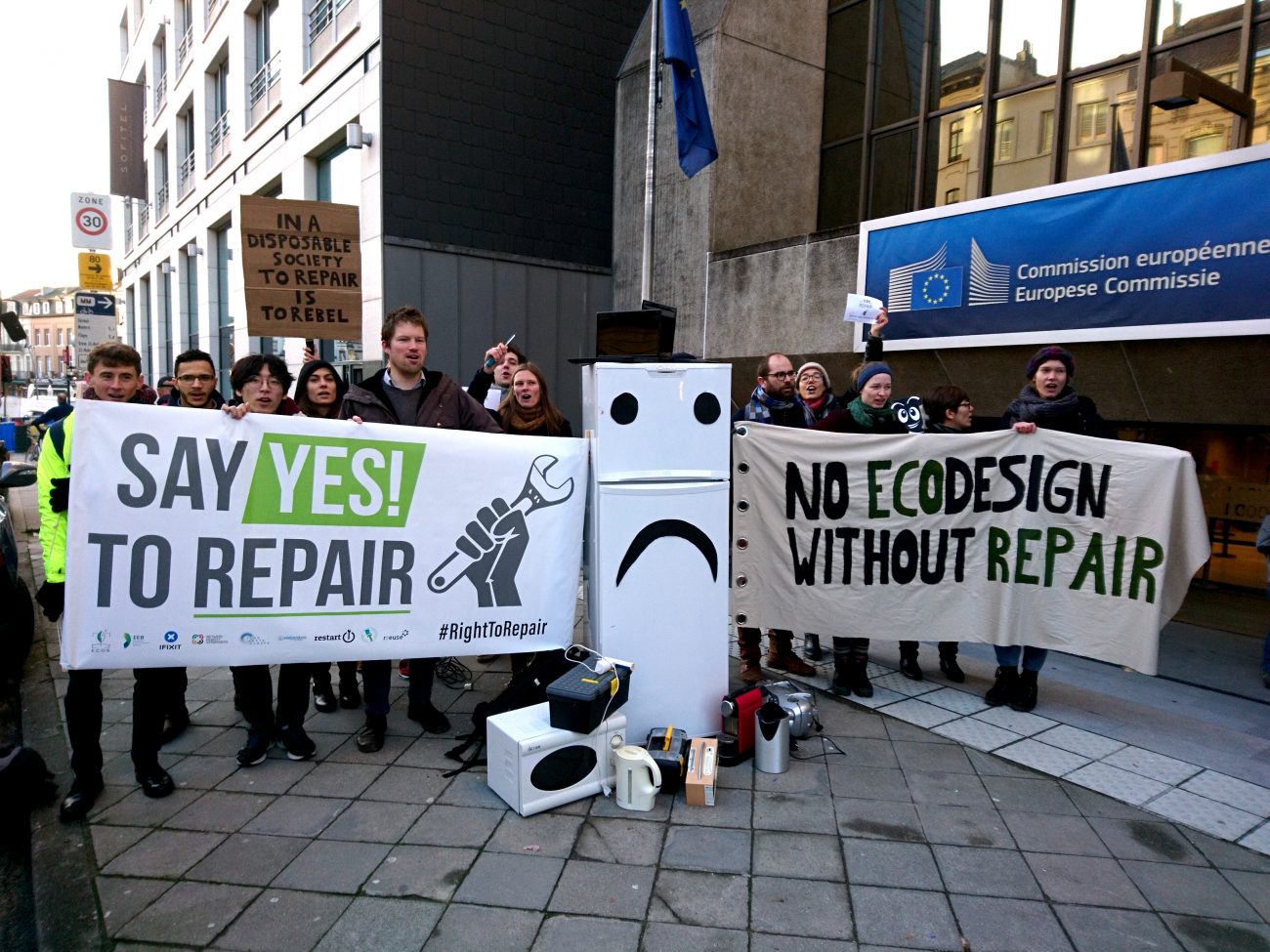Today, the European Commission released its Green Deal.
The document, which was one of the key promise of the new President Ursula Von Der Leyen, outlines policy priorities for the next five years, which are meant to help Europe reach carbon neutrality by 2050.
The Right to Repair campaign welcomes the announcement with cautious optimism. While it’s great that the Commission is finally shifting the focus from recycling to prevention and explicitly mentions the Right to Repair, there are no concrete measures or objectives to help create responsible business models, give people their right to repair and reduce waste at this stage.
On behalf of the Right to Repair and Coolproducts campaigns, Jean-Pierre Schweitzer from the European Environmental Bureau said:
“The Green Deal gives EU institutions a political mandate to put forward ambitious reforms upon which the future of Europe relies. Now the European Commission must present concrete measures to make the transition to a circular and zero carbon economy reality. The Right to Repair must be part of this strategy.
We welcome that the Right to Repair is mentioned in the strategy, but there should be no question about its relevance in the fight against the climate and environmental crisis.
The Right to Repair is essential to ensure that products last longer and to avoid waste as well as reduce the increasing emissions linked to manufacturing.”
If you’re interested in knowing more about the Green Deal and how it’s relevant for the Right to Repair in Europe, we’ve analysed its content here.
More details are expected in the course of 2020, notably when the Commission launches its second Circular Economy Action Plan.
We’ll make sure to make some noise!
This year, we achieved our first victory, when the European Commission approved the first-ever repairability requirements for some products, mostly large home appliances and TVs. But it’s only the beginning and much more is needed to make the Right to Repair truly universal. In the coming years, we will notably push for:
1. Good design to ensure all products can be easily repairable. The EU must set minimum manufacturing requirements allowing the disassembly of products and replacement of key parts.
2. Fair and affordable access to repair services to ensure they become the default option for consumers. All Consumers and independent repairers should be granted access to spare parts and repair manuals for the entire lifetime of a product;
3. A European-wide label indicating the repairability of a product to keep consumers informed.
If you’d like to join or contribute to our fight, we would love to hear from you!

